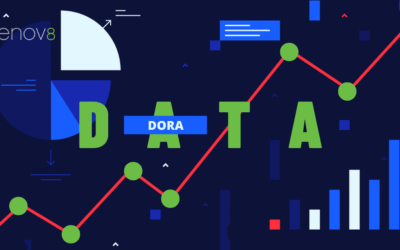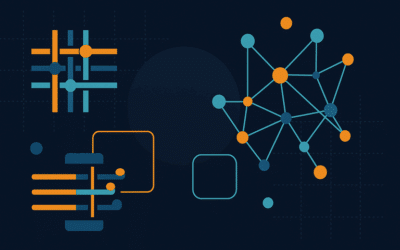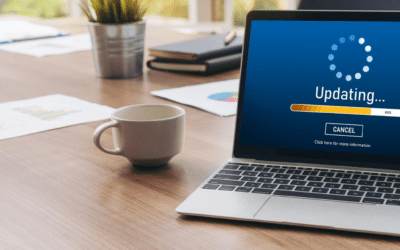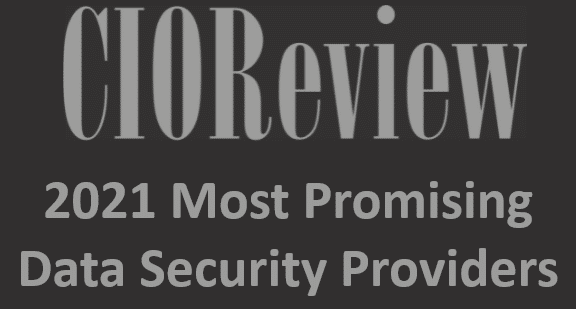Supporting Privacy Regulations in Non-Production
18
SEPTEMBER 2020
by Arnab Chowdhury
Every aspect of our daily lives involves the usage of data. Be it our social media, banking account, or even while using an e-commerce site, we use data everywhere. This data may range from our names and contact information to our banking and credit card details.
The personal data of a user is quite sensitive. In general, all users expect a company to protect their sensitive data. But there is always a slight chance that the app or service you are using might face a data breach. In that case, the question that comes to mind is how the company or app will keep your data safe.
The answer is data privacy regulations. Nowadays, most countries have their individual data privacy laws, and companies operating in those countries generally follow these laws. Data privacy laws protect a customer’s data in production. But did you ever think about whether your dev or testing environment is safe and secure?
In this post, we’ll discuss why you must follow data privacy regulations in a non-production environment (aka your development and test environments). We’ll take a look at the challenges faced while complying with privacy rules, solutions to these challenges, and strategies to follow while implementing privacy laws in non-production. But before that, we’ll discuss a bit about privacy regulations. So, let’s buckle up our seat belts and take a deep dive.
What Do You Mean by Privacy Regulations?
Data privacy regulations or data compliance is a series of rules that companies must abide by to ensure that they’re following all the legal procedures while collecting a user’s data. Not only that, but it’s also the company’s job to keep the user’s data safe and prevent any misuse.
There are various data privacy laws. For instance, companies operating under the European Union follow GDPR. On the other hand, the United States has several laws like HIPAA, ECPA, and FCRA. Failing to follow these rules results in potential lawsuits or penalties. The goal of these rules is to keep a user’s sensitive data safe and secure from malicious activities.
Now that we know what data privacy regulation is, let’s discuss why we need to follow these rules in non-production.
Why Privacy Regulations in Non-Production Are Important
While deploying an app or a site in production, we add various security protocols. But often, the environment where we develop or test our apps is not that secure. In 2005 and 2006, Walmart faced a security breach when hackers targeted the dev team and transferred sensitive data and source code to somewhere in Eastern Europe.
This kind of incident can happen to any company. Currently, many companies use production data for in-house testing or development. So, how does a company ensure that a user’s sensitive data is safe? The answer is data masking, which is one of the mandatory rules of data privacy regulations.
However, implementing data privacy rules comes with many challenges. Let’s explore some of them and the ways to resolve these challenges.
Challenges Faced While Complying With Privacy Rules
Adapting to something new always comes with certain challenges, be it some new tool, technology, or regulation. Data privacy is no exception. However, the challenges are not that complicated. With proper planning, overcoming them is quite straightforward.
Adapting to New Requirements
Data privacy regulations are generally process-driven. While implementing privacy rules in non-production, your team must welcome changes in the way they do things. This may involve data masking, generating synthetic data, etc. Your team will take some time to adapt to the new processes.
Chalk out a plan before the transition. Train your team and explain why they need to follow these regulations. With proper training and clarification of individual roles, adapting to the new changes won’t take much time.
New Rules of Test Data
If your testing team is using real user data for testing the essential features of your product, beware. The process is going to change. As per data privacy regulations, you cannot use real user data for testing, so the challenge comes while rearranging or recreating your test data.
However, with a proper test data management suite, the task becomes a lot easier than doing the entire thing manually.
Adjusting Your Budget Plan
Implementing any new process often involves spending a lot of money. While implementing privacy laws, you have to think about factors like
- the research your teams need to do
- the purchase and implementation of data compliance tools that will help you generate privacy-compliant test data
- the arrangement of training sessions for your team
- the hiring of resources to monitor or enforce compliance laws
All of the above and more will affect your budget, so it’s best to have a discussion with your finance and technical team. Figure out the zones where you should focus spending and calculate an approximate amount. Planning is beneficial if you want to avoid overspending. On that note, in the following section, we’ll discuss some strategies to follow while implementing privacy regulations in non-production.
Strategies to Implement Privacy Regulations in Dev and Testing
Although there is no end to planning strategies while implementing data privacy regulations, there are some important steps that we can’t miss.
Sorting Data
Before following privacy laws, you must know everything about your data. If the project is at a starting phase, there will be a lot of customer data. Discuss this with your team to categorize the data and clarify what data is sensitive to the user. Once you categorize the data and separate sensitive data from general data, it’s time for the next steps.
Encrypting Sensitive and Personal Data
GDPR and other data privacy laws make it mandatory for you to secure any sensitive data. Ensure that if you have any such data in a non-production environment, it’s secured by layers of encryption. Even if you’re not using the data, you must still secure it in your database. This is because no matter how strong your firewall is, hackers can always breach it. So it’s wise to protect sensitive data with layers of encryption apart from just a firewall.
Restricting Access to Database
As per most data privacy rules, your database should not provide overall access to all users. Since a database has multiple types of data, you must create roles and grant specific permission to each role. For instance, a tester should have access to test data only and not production data. Imagine if a fresher on your team deletes a table from the production database. The incident may happen by mistake, but it will cost the company a lot. Enforce these rules to prevent similar unfortunate mishaps.
Change the Policies of Cookies
If you’re developing a site, you’ll need to think about how your cookies work and whether they comply with the data privacy law you’re following. For instance, what if your website is operating outside the EU and the target audience is in the EU? In that case, apart from standard compliance, you need to comply with GDPR as well. As per GDPR, a website should collect a user’s personal data only after they agree to cookie consent. That means you should inform the user about the data used by your site’s cookies to perform specific functions. The information must be clear, and your cookies can collect data only after the user gives permission.
Use of a Compliance Monitoring Solution
Generally, companies often appoint a data protection officer (DPO) whose job is to monitor the processes, analyze the risk, and suggest measures so that your company never fails to comply with privacy laws. But a DPO is a normal human being. When it comes to large data sets, a human mind can always miss something. The solution? Provide your DPO with a compliance monitoring solution.
Enov8 provides such a solution that addresses the needs of compliance managers. The tool monitors your data and identity risks. Not only that, but the tool also helps you to find compliance breaches and points out processes that you need to optimize in order to protect the data.
Disclose Important Information to Users
Data privacy laws ensure that users should have all the knowledge about how companies are using their data. You must disclose everything about data usage while signing the agreements. Situations may arise later for which you may need to revise the agreement. For instance, suppose you’re monitoring the logs of a system that’s connected with the customer’s network. If the logs contain the user’s IP address or other sensitive data, inform the customer.
Synthetic Test Data Generation and Data Masking
There are some cases where you need real data to develop or test something. But what if the data compliance standard that your company follows prohibits you from using real data? Don’t worry. Synthetic data is the next best thing. Synthetic data is test data generated by an algorithm and closely imitates the original data. You can also use data masking, where sensitive data is hidden and replaced by similar dummy data. The advantage? You can continue your work without any risk of failing to comply with privacy laws.
Train Your Team on Privacy Regulations
When it comes to complying with privacy laws, there is no end to learning and adapting to new things. It’ll be quite hectic for your team if you enforce a lot of rules on your team all of a sudden. Make the transition smooth by arranging training sessions for your employees to explain the need for compliance with privacy laws and the consequences if they fail to abide by these laws. In addition, train them on using data compliance suites. You can take a look at Enov8’s data compliance suite, which monitors your data and ensures you’re compliant with GDPR, FCRA, ECPA, and multiple other standards.
Keeping your test and dev data compliant with privacy laws may prove to be a little challenging at first. But if planned and executed in a phased manner, your team will adapt easily.
Arnab Chowdhury
This post was written by Arnab Roy Chowdhury. Arnab is a UI developer by profession and a blogging enthusiast. He has strong expertise in the latest UI/UX trends, project methodologies, testing, and scripting.
Relevant Articles
DORA Compliance – Why Data Resilience is the New Digital Battlefield
How Enov8 Helps Financial Institutions Align with the EU's Digital Operational Resilience Act Executive Introduction As of January 2025, the EU's Digital Operational Resilience Act (DORA) has become legally binding for financial institutions operating across the...
Data Fabric vs Data Mesh: Understanding the Differences
When evaluating modern data architecture strategies, two terms often come up: data fabric and data mesh. Both promise to help enterprises manage complex data environments more effectively, but they approach the problem in fundamentally different ways. So what’s...
What Is Release Management in ITIL? Guide and Best Practices
Managing enterprise software production at scale is no easy task. This is especially true in today’s complex and distributed environment where teams are spread out across multiple geographical areas. To maintain control over so many moving parts, IT leaders need to...
Test Environment: What It Is and Why You Need It
Software development is a complex process that requires meticulous attention to detail to ensure that the final product is reliable and of high quality. One of the most critical aspects of this process is testing, and having a dedicated test environment is essential...
PreProd Environment Done Right: The Definitive Guide
Before you deploy your code to production, it has to undergo several steps. We often refer to these steps as preproduction. Although you might expect these additional steps to slow down your development process, they help speed up the time to production. When you set...
What is Data Tokenization? Important Concepts Explained
In today’s digital age, data security and privacy are crucial concerns for individuals and organizations alike. With the ever-increasing amount of sensitive information being collected and stored, it’s more important than ever to protect this data from...










